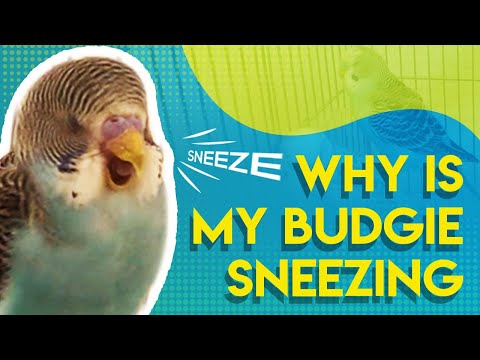Owning pet birds comes with many responsibilities, and a huge part of that is ensuring their proper health. After all, a budgie owner wouldn’t want their pet to suffer for something which can be prevented, such as excessive sneezing.
So why is your budgie sneezing? Like humans, it’s perfectly normal for budgies to sneeze too! And budgies sneeze almost for the same reasons as we do. Catching a cold, seasonal flu or infection, dusty environment, or allergens can trigger your budgie to sneeze.
Don’t fret! We’ve covered everything from the cause of sneezing to its symptoms and remedies. So, keep reading!
Why Is Your Budgie Sneezing?
Sneezing is a natural reflex and is common among birds and humans alike. If your budgie gives an occasional sneeze or two, it’s nothing to worry about. In fact, sneezing once in a while with ruffled feathers indicates that your pet’s immune system is working properly.
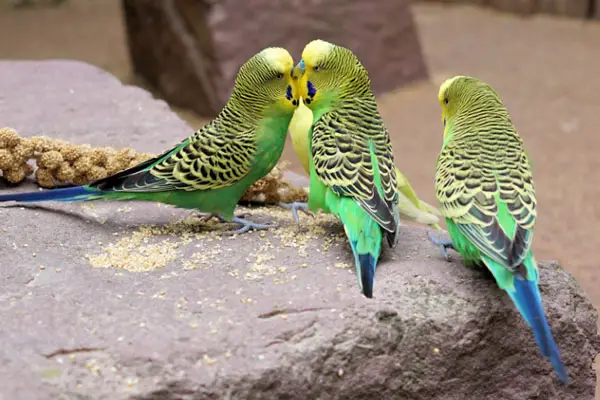
But, regular and frequent sneezing indicates that your budgie has health issues. Several factors can influence your budgie to sneeze abnormally, like –
Dusty Environment
A poorly ventilated and dusty environment is one of the major causes of sneezing. The dust and debris accumulate in the nasal cavity, resulting in a reflex from the body in the form of sneezing. It can cause nasal discharge too.
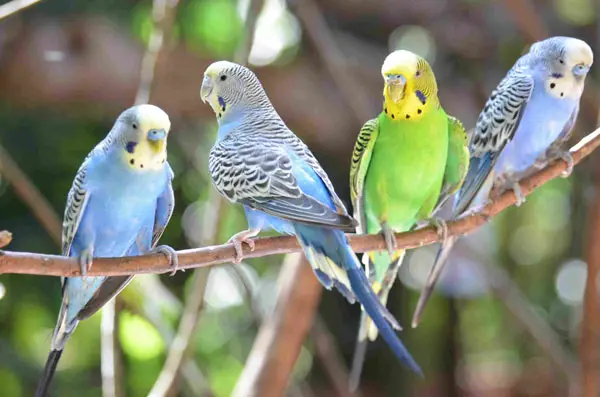
Symptoms
Your pet will show difficulty in breathing if the area is heavily dusted, as little specks of dust can get in their lungs and cover their body.
What to do?
Keep the environment well ventilated and ensure your budgie gets proper sunlight daily. Regularly clean the area where your bird stays. If you want to know more about why birds sneeze, you can check this article.
Pollutants And Allergens
Some birds may have allergies to some specific particles, like pollen grain or dust particles, causing them to have a sneezing fit. It can cause them to have a loss of appetite too.
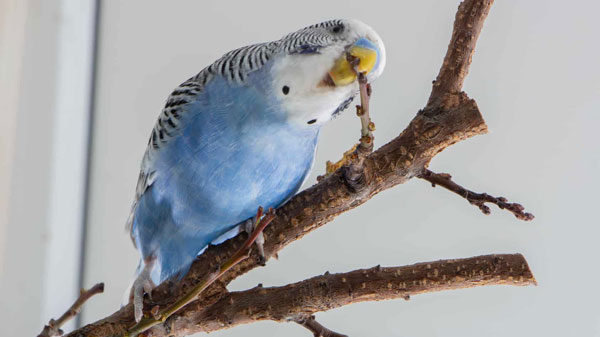
Symptoms
The bird will sneeze, cough, or show some sort of reaction when brought near the allergen. Rashes may develop in different parts of the body. Swelling and puffiness are also common symptoms of having an allergic reaction.
What to do?
Properly ventilate and clear your budgie’s living space. Ensure the allergens don’t find their way near your pet. Your pet should take regular medications prescribed by the vet.
Smoke From Cigarettes
A lot of the time, smoke from cigarettes nearby can cause the budgie to inhale it. This can cause sneezing and other respiratory problems.
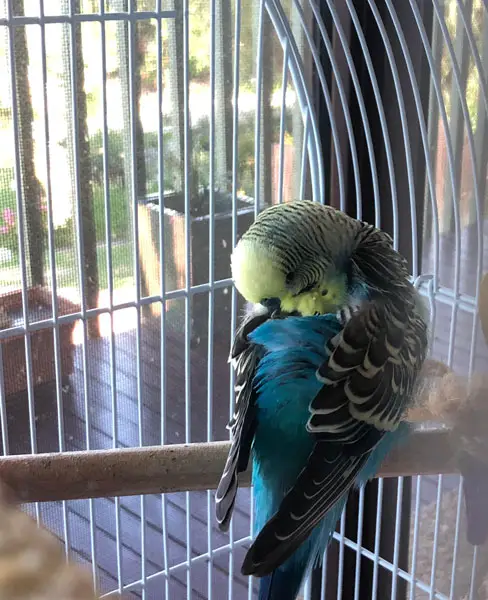
Symptoms
Watering eyes and difficulty in breathing.
What to do?
Abstain from smoking when near your pet.
Sinus Blockage
Sinus blockage causes the area around the eyes and nose to puff up, causing a viral infection or fungal infections. Sneezing non-stop is also a symptom of sinus blockage. Discharge in birds is common when a vital body part gets blocked too.
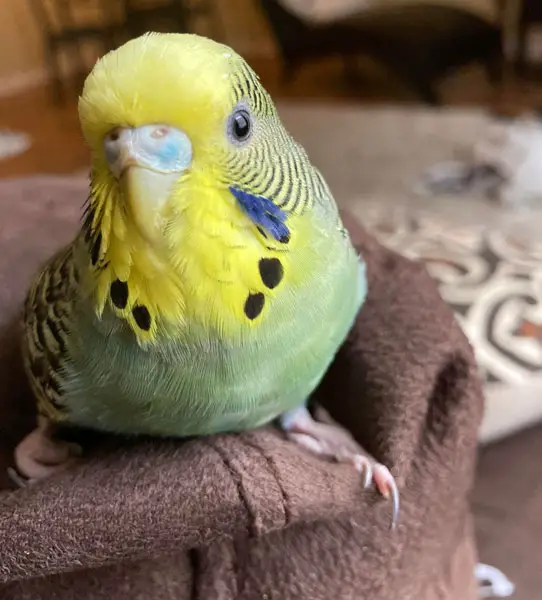
Also read: My Budgie Escaped, Will It Survive Alone?
Symptoms
Non-stop sneezing fits followed by coughing with heavy discharge and swelling of the optical-nasal area.
What to do?
Start treating your budgie according to the instructions of your vet. Serve your pet warm beverages from time to time and keep away from cold surroundings.
Cold and Damp Environment
Sneezing is the most common symptom of catching a cold. During winter and rainy, it’s pretty natural to catch a cold or get ill. It can also cause them to have a dry sneeze. A humid environment is also bad for budgies.
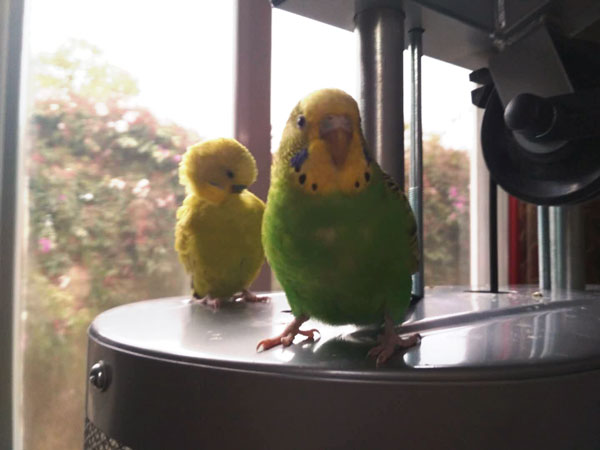
Symptoms
When body temperature is low and does noisy breathing.
What to do?
Serve hot beverages to your budgie; it’ll bring down the cold and prevent a dry sneeze. Keep your budgie warm and cozy to avoid catching a fever. If needed, use medications prescribed by a doctor.
Malnutrition And Unhealthy Diet
An unhealthy and imbalanced diet leads to malnutrition, which results in a weakened immune system. When your pet’s immune system is ineffective, it falls prey to germs and remains sick more often. Undigested food is a huge problem too.
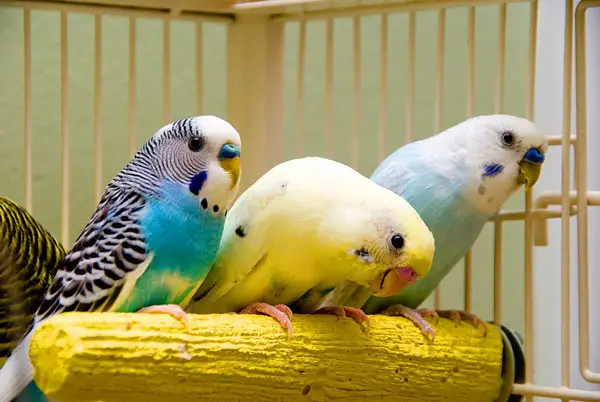
Symptoms
Malnourished budgies are underweight; thus, they are lethargic. Dullness and flakiness of skin and feathers also indicate malnourishment.
What to do?
Ensure that your budgie gets a nutritious and healthy diet consisting of fresh fruits and vegetables. You can check out this YouTube video to know more about budgies sneezing.
Viral/Bacterial Infection or Seasonal Flu
One of the most common reasons for your budgie sneezing is that it has caught the flu or other diseases in its respiratory system. Exposure to damp conditions and expired foods also leads to infection. An air filter is recommended if this happens.
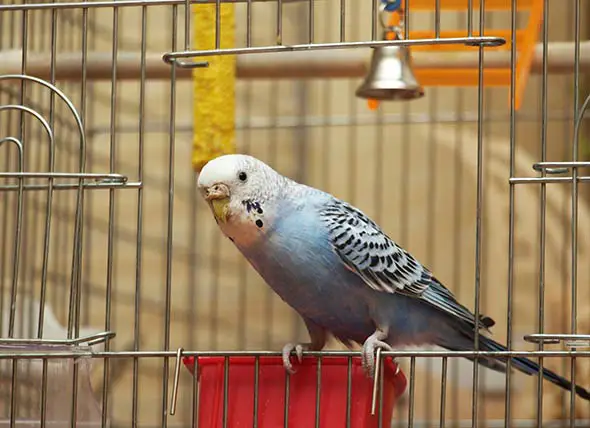
Symptoms
Sneezing is just one of the symptoms of your bird having the flu. Other symptoms include- lack of appetite, breathing problems, consistent fever, and runny stool.
What to do?
Treat your budgie according to the doctor’s instructions and ensure proper medication, diet, and rest. Try getting them to the vet as soon as possible; you can call an emergency vet service like Common Veterinary Emergency for help.
How To Prevent Your Budgie From Sneezing?
We all know that prevention is better than cure. So, if you’re careful from the beginning, your budgie won’t fall sick and suffer.
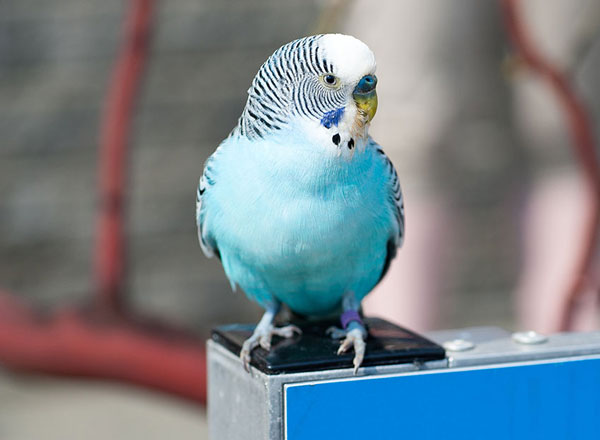
By following these steps, you can ensure a healthy growth environment for your beloved pet:
- Always keep your pet room well ventilated. Dust and clean the space regularly. Allow abundant sunlight to enter the room.
- Don’t place allergic particles near your pet. Avoid using fragrances and scents that your budgie finds irritating. Abstain from smoking near your pet.
- Make a balanced and nutritious diet for your budgie. Ensure it’s getting adequate calories. Include vegetables and fruits to add loads of vitamins, minerals, and antioxidants to your pet’s food habit. If you’re confused about what to add, check out this article.
- Go for regular checkups and follow the doctor’s instructions. Give medicine timely and consistently.
Related: Why is Budgie Poop Sticking to Bottom?
FAQs
Here are some of the most common questions we get, and we have provided all of them with detailed and quick answers.
Sneezing is perfectly normal for budgies. Usually, when a tiny particle tries to enter the body through the nasal cavity, a sneeze is formed. You don’t need to worry about sneezing unless followed by other symptoms which indicate an underlying health issue.
The lifespan of the bird depends on the level of contamination. If the infection rate is severe, sadly, the bird won’t last longer than a month. If the respiratory disease is mild and diagnosed early on, proper medication and treatment can rescue the bird from dying.
The discharges expelled from your budgie during sneezing or coughing can be infectious. Bury the discharges deep underground to prevent exposure.
Outro
Hopefully, after reading this article, you’ll have a better insight into why is your budgie sneezing. Don’t panic, as it’s nothing life-threatening. Diagnose the symptoms and figure out the cause. Then treat accordingly, and your budgie should be good.
Good luck, and stay safe!

